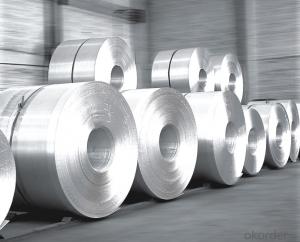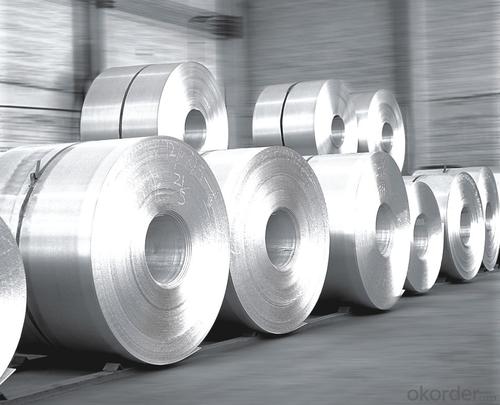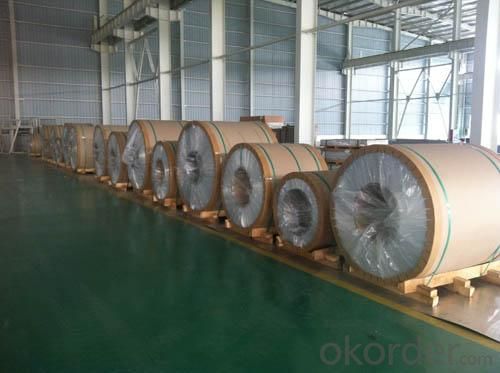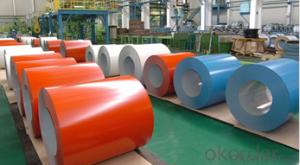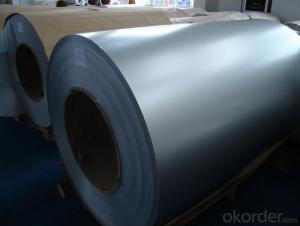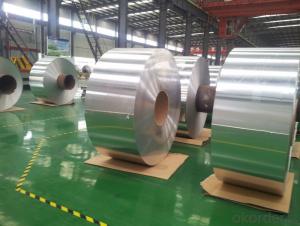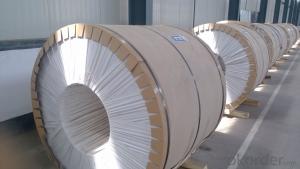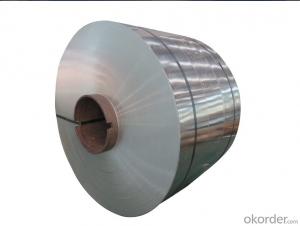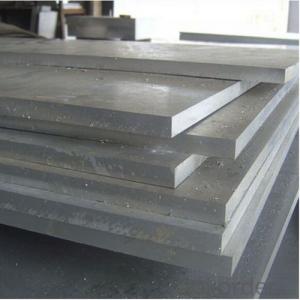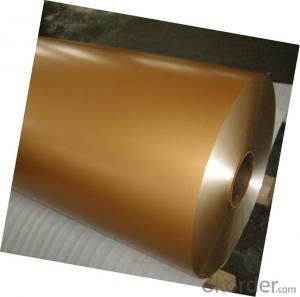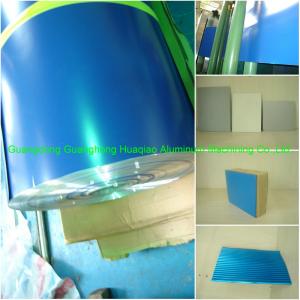6083 T651 Aluminium Alloy Plate/Coil from China
- Loading Port:
- Shanghai
- Payment Terms:
- TT OR LC
- Min Order Qty:
- 5 m.t.
- Supply Capability:
- 90000 m.t./month
OKorder Service Pledge
OKorder Financial Service
You Might Also Like
Specification
6083 t651 aluminium alloy plate/coil price
Product Description
6000 series aluminium alloy plate, generally called Al-Mg-Si alloy, the magnesium and silicon are used as main alloy element. Feature: most the advantages of 4000 series & 5000 series alloy, good corrosion resistant performance, well welding property, good oxidability, easy to spray-finishing,well oxidation coloring, good machinability, middle strength, often used used after heat treatments.
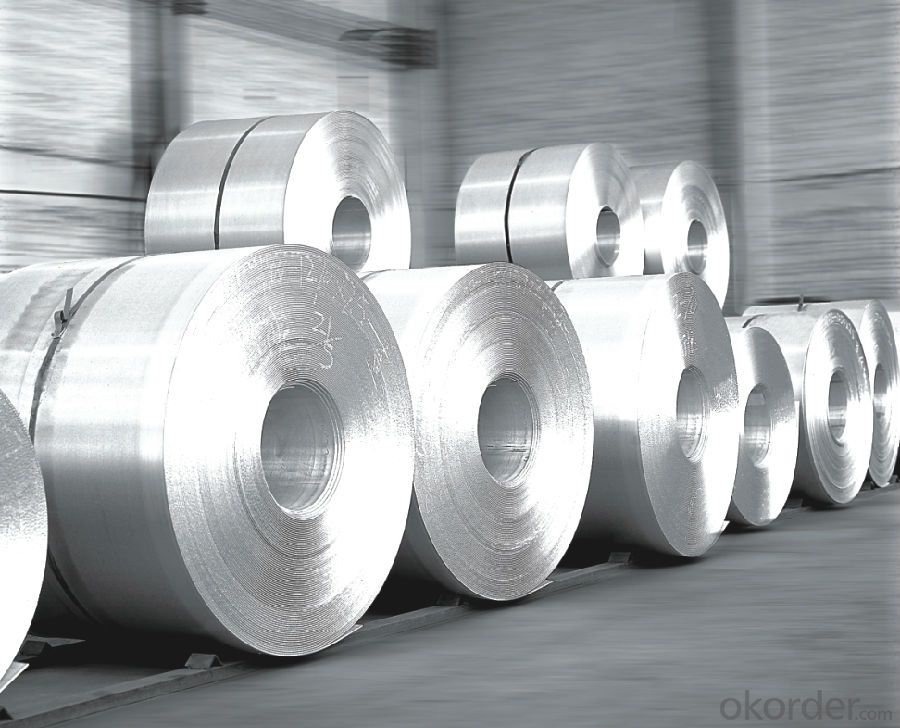
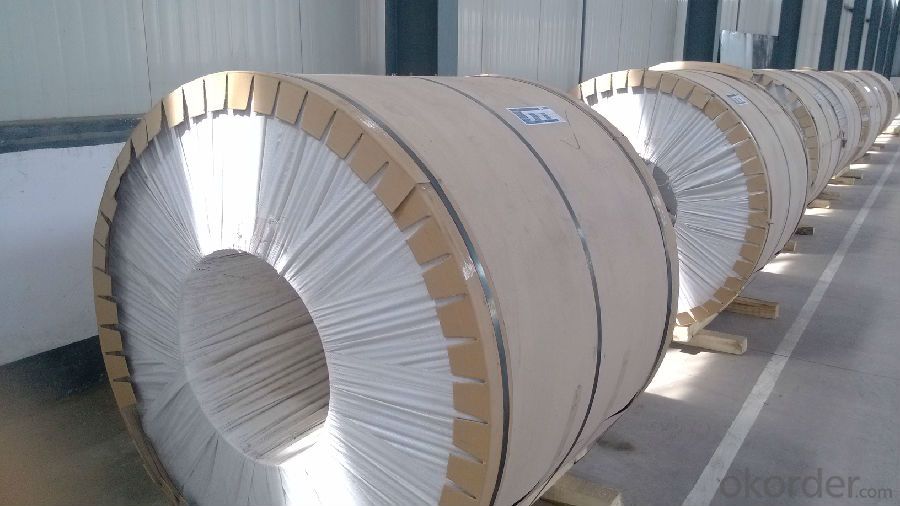
Product Specification
| Alloy Band | 6061, 6063, 6082 |
| Temper | O, T4, T6, T651 and other |
Thickness | ≤170mm |
Width | ≤2200mm |
| Longth | ≤12000mm |
| Application | Automobile, Aviation, Electronics, Mold, Quenched plate, Pre-stretched plate, etc |
| Standards | ASTM-B209. EN573-1, GB/T3880.1-2006 |
| MOQ | 5 tons |
| Payment Term | L/C; T/T. |
| Delivery Time | Within 30 days after receipt of deposit. |
| Notice: We can according to customer requirement offer other different alloy band and state product | |
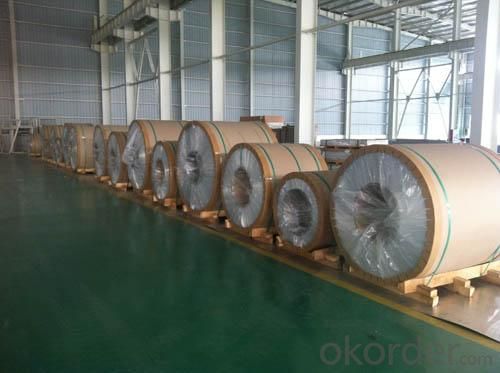
- Q: This question asks for the method to cut an aluminum coil into smaller sections.
- <p>To cut an aluminum coil into smaller pieces, you can use a metal cutting band saw, which is designed for cutting metal materials. Ensure the blade is sharp and the speed is appropriate for aluminum. Secure the coil in a vice or a cutting table to prevent movement during cutting. Wear safety goggles and gloves. Turn on the saw and slowly feed the coil through the blade, applying steady pressure. After cutting, smooth any rough edges with a file or sandpaper. Always follow safety precautions and manufacturer's instructions for your specific cutting tool.</p>
- Q: What are the different types of aluminum coils available?
- There are several types of aluminum coils available, including painted coils, embossed coils, brushed coils, anodized coils, and perforated coils. Each type offers unique characteristics and applications, catering to various industries and aesthetic preferences.
- Q: This question asks for methods to preserve the lifespan of an aluminum coil.
- <p>To maintain an aluminum coil and ensure its longevity, follow these steps: Store the coil in a cool, dry place away from moisture and direct sunlight. Keep it clean by regularly removing dust and debris. Avoid scratching or denting the coil's surface. Handle the coil carefully to prevent damage. Use appropriate lubricants when necessary to reduce friction. Regularly inspect the coil for any signs of corrosion or wear and address these issues promptly. By following these practices, you can extend the life of your aluminum coil and maintain its quality.</p>
- Q: What are the uses of aluminum coils?
- Aluminum coils have a wide array of applications in various industries. HVAC systems and air conditioning units heavily rely on aluminum coils for their heat transfer and air cooling functions. These coils are indispensable components in these systems. Moreover, the construction industry frequently utilizes aluminum coils for roofing, cladding, and insulation purposes. Their lightweight nature, durability, and resistance to corrosion make them perfect for outdoor applications. The automotive industry also incorporates aluminum coils in the production of vehicles. These coils are used in the manufacturing of various parts, including radiators, heat exchangers, and condensers, owing to their exceptional heat transfer properties. The packaging industry extensively depends on aluminum coils as well. These coils are employed in the production of cans and containers for food and beverages. Aluminum is an excellent choice for packaging due to its lightweight nature, recyclability, and ability to provide a barrier against moisture, oxygen, and light. This ensures the quality and freshness of the enclosed products. Furthermore, aluminum coils find applications in electrical wiring, where they serve as conductors due to their high electrical conductivity. They are also used in the production of electronics like laptops, smartphones, and tablets, as they possess excellent heat dissipation properties. In conclusion, the uses of aluminum coils span across a diverse range of industries, including HVAC systems, construction, automotive, packaging, and electrical applications. The versatility, durability, and exceptional properties of aluminum make it a favored material choice in numerous sectors.
- Q: How are aluminum coils made?
- Aluminum coils are made through a process called continuous casting and rolling. The process begins with the melting of aluminum ingots or scrap in a furnace. Once the molten aluminum reaches the desired temperature, it is transferred to a holding furnace. From there, the molten aluminum is continuously cast into a solidified strip, which is then fed through a series of rolling mills. The rolling mills apply pressure to the aluminum strip, reducing its thickness and increasing its length. This process is repeated multiple times until the desired thickness and width are achieved. During the rolling process, the aluminum strip is also cooled and lubricated to prevent it from sticking to the rollers and to enhance its surface finish. After rolling, the aluminum strip is coiled to form a continuous sheet of aluminum coil. The coils are typically wound tightly to minimize any air gaps and ensure stability during transportation and storage. At this stage, the coils can undergo additional processes such as annealing, where they are heated and slowly cooled to improve their mechanical properties and make them more suitable for specific applications. Overall, the production of aluminum coils involves a combination of melting, casting, rolling, and coiling processes, all aimed at producing high-quality coils with the desired dimensions and properties.
- Q: I would like to order 25 micron diameter 99.99% Aluminum wire required to use for making electrical connections. Only several cm are needed, so I would like to purchase a small spool. Delivery ASAP preferable (overnight or two day shipping would be best). This wire will be attached by hand using epoxy and not using a wire bonder.
- If they can't help, try asking the tech support guys at the wirebond manufacturers and the tool manufacturers. KS in the US and Shinkawa in Japan used to be the big guys. You can search for ultrasonic bond tools. You can also check with superconducting research centers; several private and public ones. Researchers might loan you materials and/or bonding support. BTW, Al critical temp is reportedly about 1.2°K, pretty tough to get that cold! U/S bond wire has 1% silicon, partly for hardness, you can probably bond pure wire though. Key is breaking up the oxide. Maybe bonding at cold temps and/or in vacuum would work. Also, I doubt epoxy would be good or superconducting at the temps. Al filled epoxy is unreliable electrical conductor due to oxide formation. Will be a bear to handle such fine wires without a bonder! Good luck!
- Q: Can aluminum coils be used in the production of solar panels?
- Yes, aluminum coils can be used in the production of solar panels. Aluminum is a lightweight and durable material that offers various benefits for solar panel manufacturing. It is highly conductive and has excellent thermal properties, allowing for efficient heat dissipation. Additionally, aluminum is resistant to corrosion, which is crucial for solar panels as they are exposed to various weather conditions. Moreover, aluminum is a cost-effective material, making it a popular choice in the solar industry. Overall, using aluminum coils in the production of solar panels helps to enhance their performance, longevity, and cost-effectiveness.
- Q: Are aluminum coils suitable for roofing?
- Yes, aluminum coils are suitable for roofing. Aluminum is a lightweight and durable material that is resistant to corrosion, making it an excellent choice for roofing applications. It is also highly reflective, which can help to reduce energy costs by keeping the building cooler. Additionally, aluminum coils are easy to install and maintain, making them a popular option for both residential and commercial roofing projects.
- Q: Can aluminum coils be used in electrical applications?
- Indeed, aluminum coils possess the capability for utilization in electrical applications. Its abundance in electrical wiring is attributable to its cost-effectiveness and superior conductivity in comparison to copper. Transformers, motors, generators, and other electrical apparatuses commonly rely on aluminum coils. Nevertheless, it is essential to acknowledge that copper surpasses aluminum in terms of electrical conductivity, necessitating the use of larger aluminum coils to attain equivalent levels of conductivity. Moreover, the implementation of specialized insulation and connectors becomes imperative for aluminum coils to prevent corrosion and guarantee appropriate electrical connections.
- Q: what is the most likely charge for aluminum cation?the answer is +3, but why? how can i figure this out with different ones?
- This Site Might Help You. RE: what is the most likely charge for aluminum cation? what is the most likely charge for aluminum cation? the answer is +3, but why? how can i figure this out with different ones?
Send your message to us
6083 T651 Aluminium Alloy Plate/Coil from China
- Loading Port:
- Shanghai
- Payment Terms:
- TT OR LC
- Min Order Qty:
- 5 m.t.
- Supply Capability:
- 90000 m.t./month
OKorder Service Pledge
OKorder Financial Service
Similar products
Hot products
Hot Searches
Related keywords
